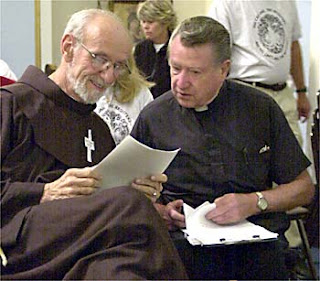Proof CIA still using secret prisons

Photo by Trevor Paglen
Last September, the Bush administration made noise announcing that no more secret prison facilities would be used by the CIA to hold prisoners seized in the "war on terror." Since then, sporadic reports have questioned the truth of this assertion.
Now, with the handover of Al-Qaeda suspect Abd al-Hadi al-Iraqi to Guantanamo, it becomes clear he was held in detention in a secret place for months prior.
Why are secret prisons necessary, especially when they have been declared closed by the President? Why must this Administration constitently flaunt the rule of law? And who will hold them accountable?
According to the New York Times:
The Pentagon announced the transfer, giving few details about his arrest or confinement.
Mr. Iraqi’s case suggests that the C.I.A. may have adopted a new model for handling prisoners held secretly — a practice that Mr. Bush said could resume and that Congress permitted when it passed the Military Commissions Act of 2006.
Unlike past C.I.A. detainees, including the Sept. 11 plotter Khalid Shaikh Mohammed, who was held by the agency for several years after being seized in Pakistan in 2003, Mr. Iraqi was turned over to the Pentagon after a few months of interrogation. He appears to have been taken into C.I.A. custody just weeks after Mr. Bush declared C.I.A. jails empty.[...]
Intelligence officials said that under questioning Mr. Iraqi had provided valuable intelligence about Qaeda hierarchy and operations. It appears he gave up this information after being subjected to standard interrogation methods approved for the Defense Department — not harsher methods that the C.I.A. is awaiting approval to use.
A debate in the administration has delayed approval of the proposed C.I.A. methods.
Military and intelligence officials said the prisoner was captured last fall on his way to Iraq, where he may have been sent by top Qaeda leaders in Pakistan to take a senior position in Al Qaeda in Mesopotamia. That group has claimed responsibility for some of the deadliest attacks in Iraq, including the bombing last year of the Golden Mosque in Samarra.
Labels: CIA, guantanamo, iraq, rendition



























